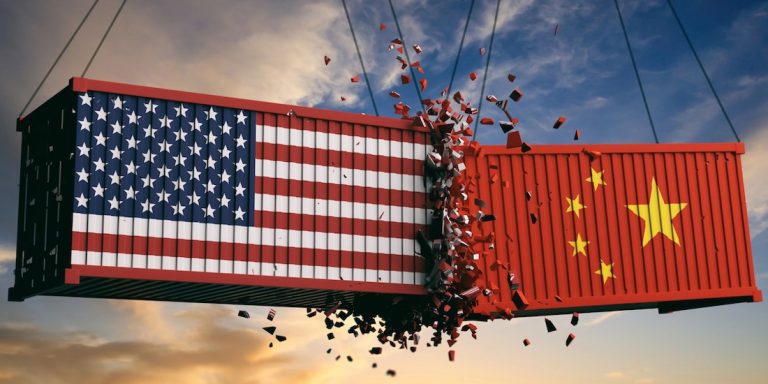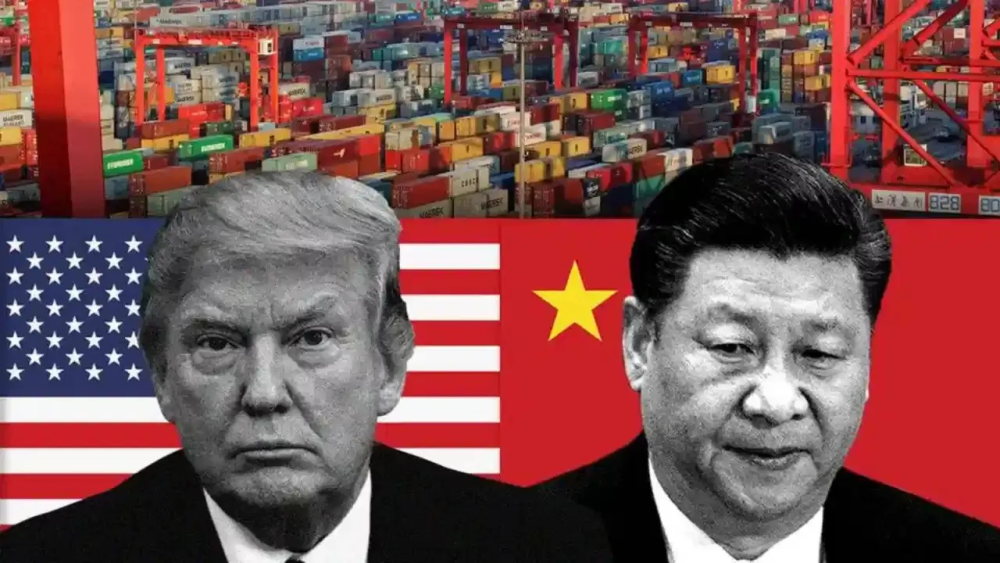
What has Trump done – tired of wreaking America, he takes on the world…
Washington, D.C. — As the trade war between the United States and China intensifies, a critical analysis of the geopolitical landscape suggests both superpowers are headed for a monumental split that could significantly disrupt the global economy. Experts warn that the deepening rift, primarily fueled by rising tariffs and aggressive nationalist policies, not only threatens to destabilize their bilateral relationship but also puts the economic prosperity of nations worldwide in jeopardy.
The U.S. government has taken increasingly hardline stances against China, citing issues ranging from intellectual property theft to trade imbalances and human rights abuses. In recent months, actions taken by the Trump administration, including imposing tariffs on hundreds of billions of dollars’ worth of Chinese goods, have only aggravated these tensions. This growing animosity has led to a cycle of retaliation: China has responded with its own set of tariffs, further complicating trade negotiations and igniting fears of a prolonged economic war.
The ramifications are already being felt.
Several industries, particularly technology and manufacturing, have reported significant disruptions in their supply chains due to the uncertainty surrounding U.S.-China trade relations. Companies that depend heavily on exporting to China have found themselves reconsidering their business strategies, with many seeking to diversify their markets or move production out of China altogether.

This exodus could lead not only to local economic instability in China but also job losses and lower economic growth in segments of the U.S. economy that are reliant on trade with the Asian giant.
But the fallout is not confined to the immediate economic circles of the U.S. and China. Analysts warn that if the two nations cannot reconcile their differences, the shockwaves will be felt around the globe. Investing giant Goldman Sachs recently released a report predicting a significant slowdown in global economic growth if the current trajectory continues.
Emerging markets, already vulnerable, face the risk of capital flight and reduced trade opportunities, as investors grow wary of engaging with economies destabilized by U.S.-China tensions.
Furthermore, the situation poses a profound risk to financial markets.
The uncertainty surrounding escalating tariffs, trade negotiations, and potential retaliatory moves has already led to volatility in global markets. The Dow Jones Industrial Average, which has often fluctuated based on U.S.-China headlines, is a clear indicator of this anxiety. As worries mount over a potential recession, the stakes are high, and policymakers are under increasing pressure to act.
China’s response to these tensions is equally complex.
As its economy struggles under the weight of trade tariffs and a tightening regulatory environment, Beijing has accelerated efforts to bolster domestic consumption and diversify trade partnerships. However, analysts argue that China’s shift cannot fully mitigate the looming threat posed by its fractious relationship with the U.S.
The risk of a two-pronged economic approach—coupled with currency manipulation and export restrictions—only exacerbates the situation, generating additional distrust in American markets and among U.S. investors.

The geopolitical impact cannot be overlooked either.
The divisions between the U.S. and China may prompt allies to choose sides, forming new alliances that could further fracture global cooperation, resulting in reduced multinational efforts to tackle critical issues such as climate change or global health crises. A fragmented international order would pose unprecedented challenges to diplomacy, raising fears about the resurgence of nationalism and isolationism.
With little indication of reconciliation on the horizon, both superpowers seem entrenched in their positions. Trump’s administration continues to champion its ‘America First’ approach, while China doubles down on asserting its global influence. As a result, the trajectory appears grim, leaving an anxious global environment in its wake.
If U.S.-China relations continue on this path, the implications for the global economy could be monumental. The world watches and waits, holding its breath as these two giants prepare to embark on a potentially disastrous trade war—one that could leave no nation unscathed.
U.S.-China Trade War: Economic Fallout Expected Worldwide (April 10, 2025)